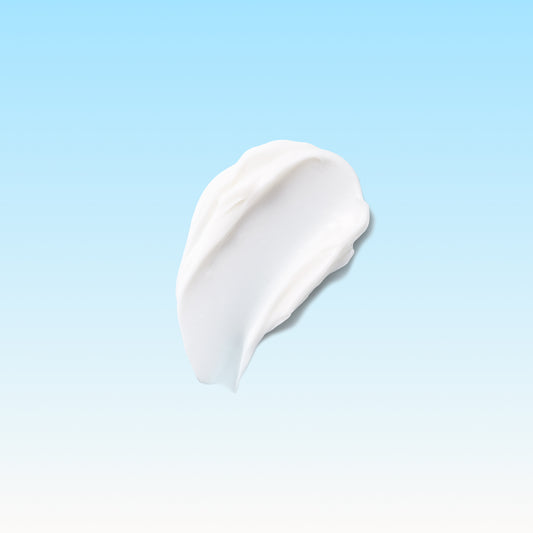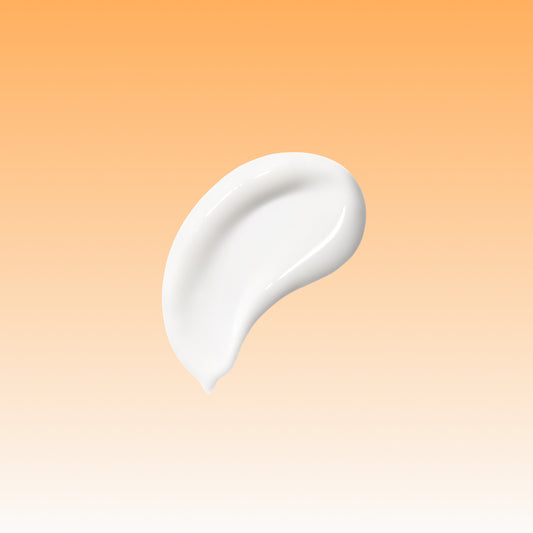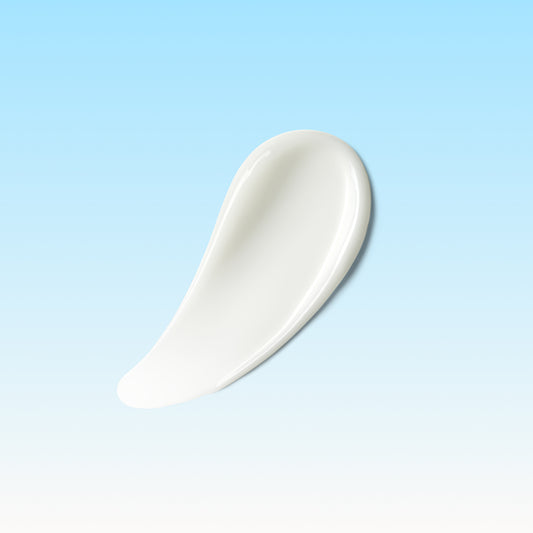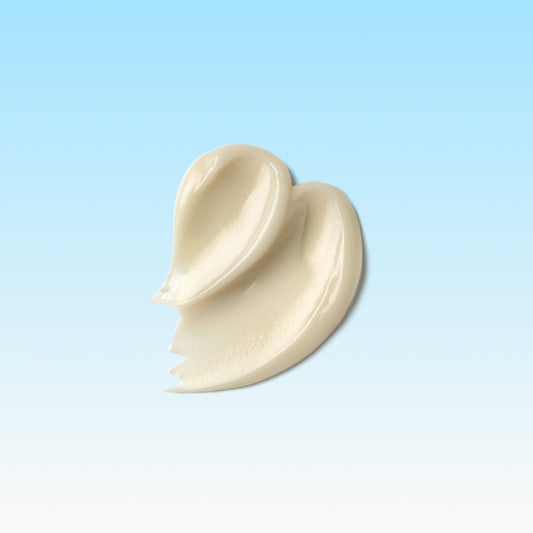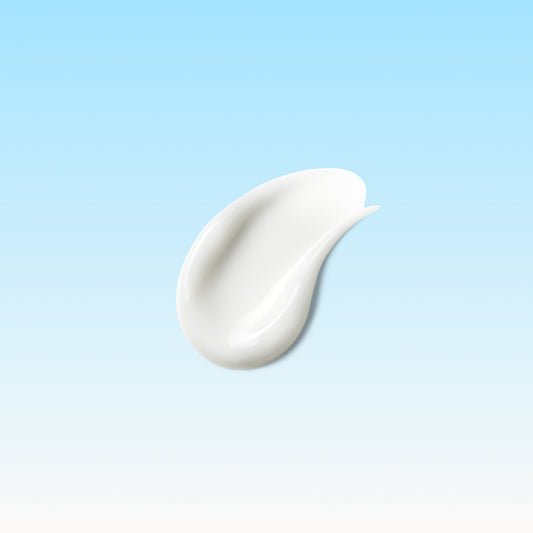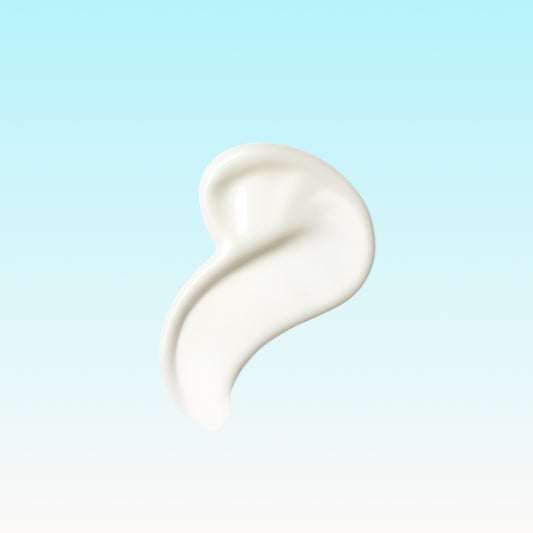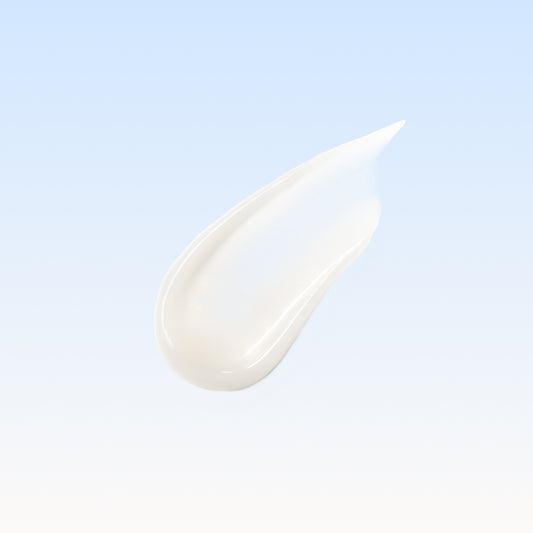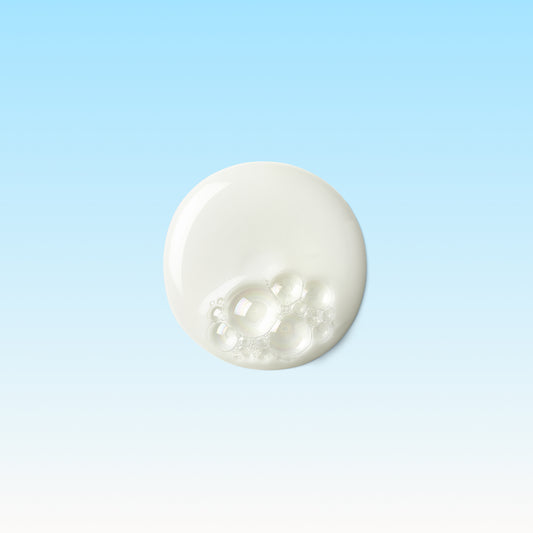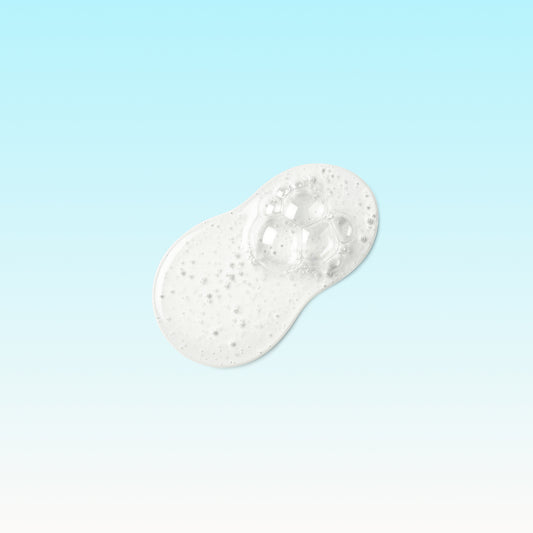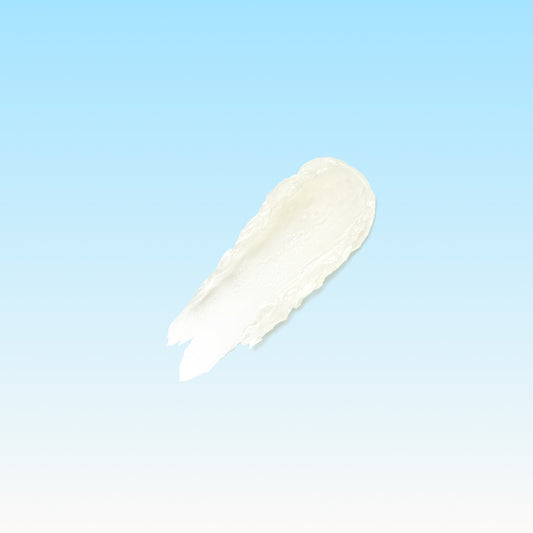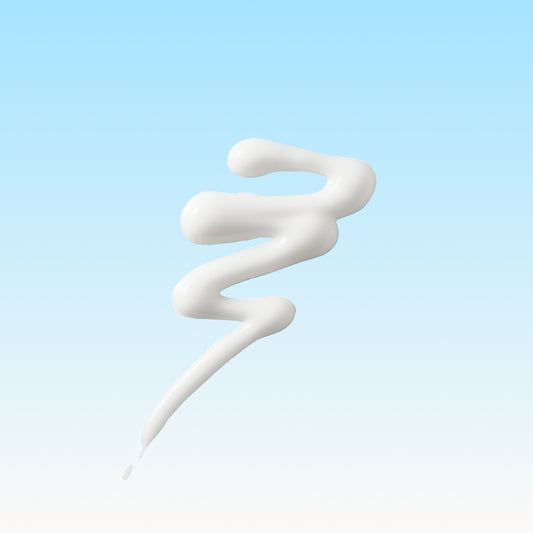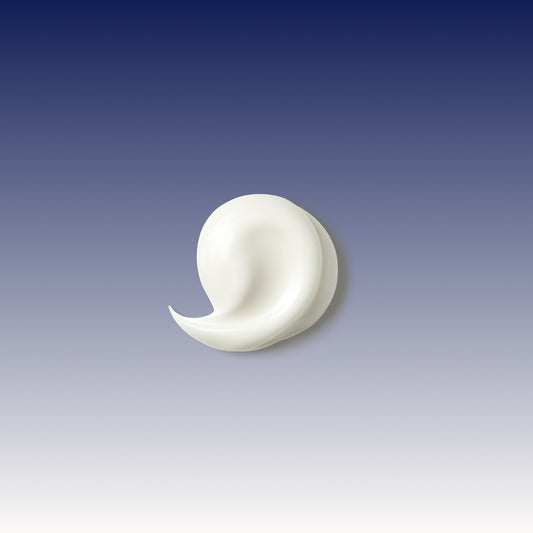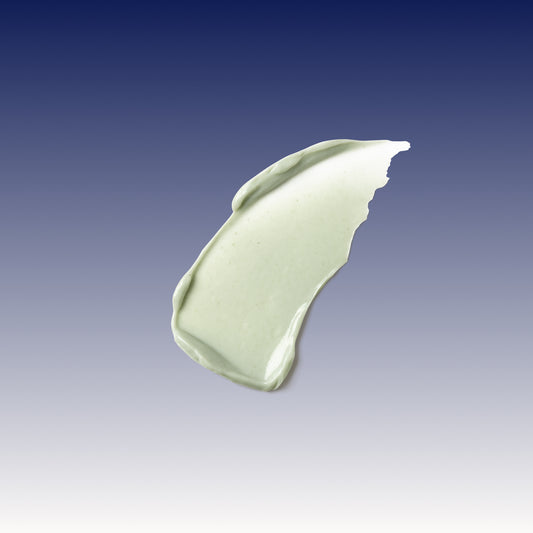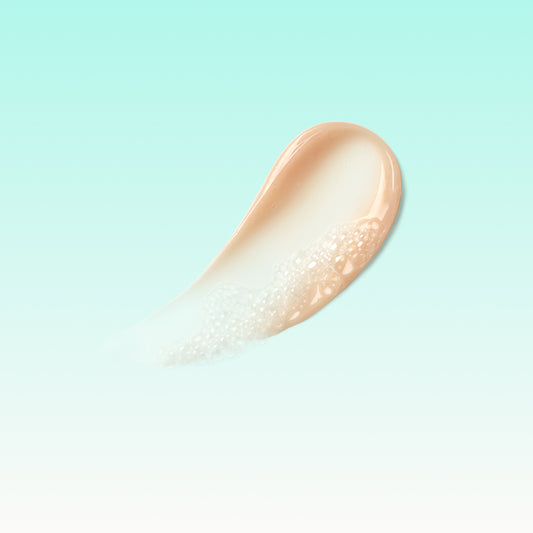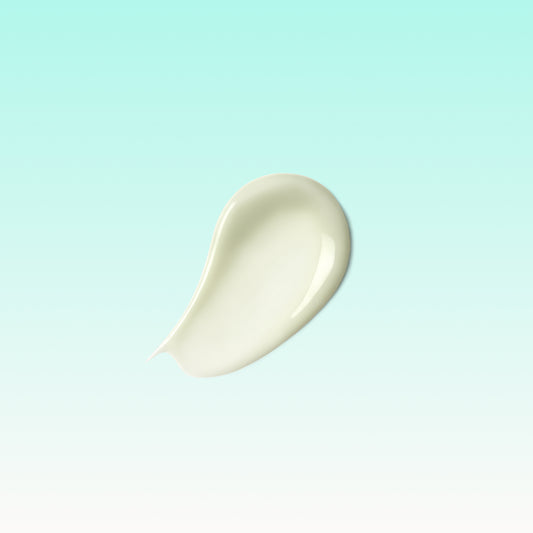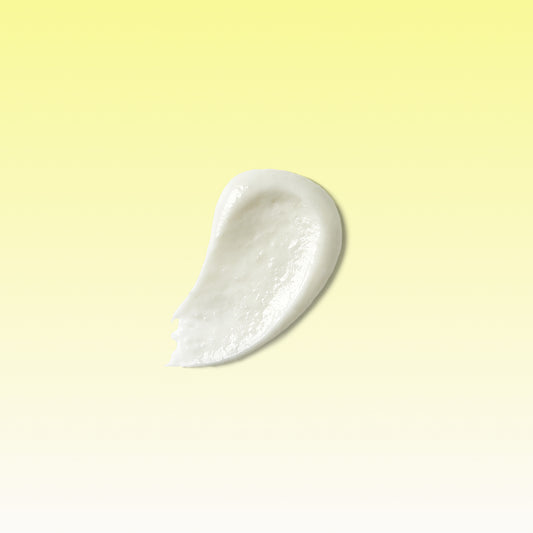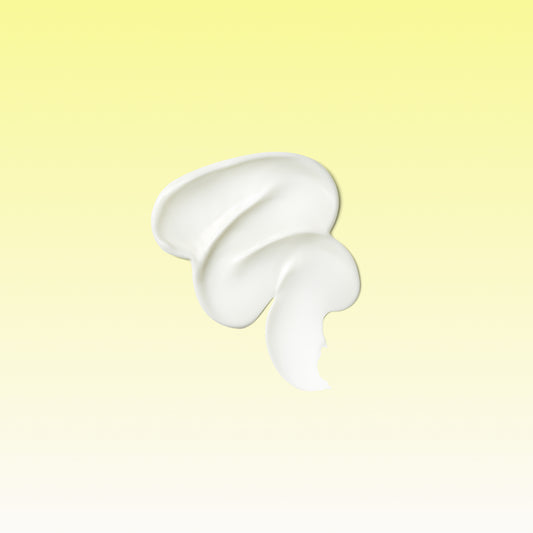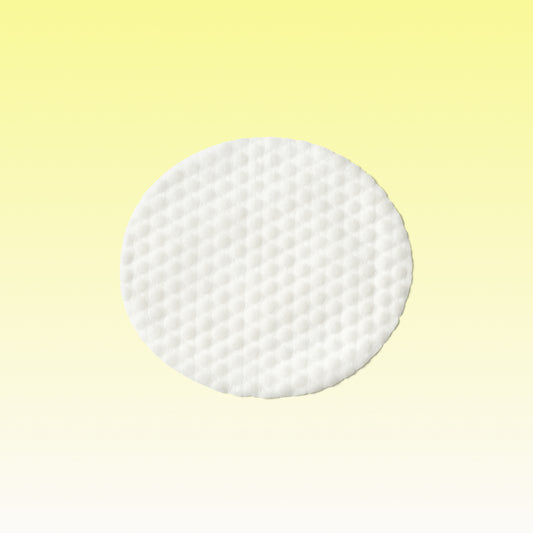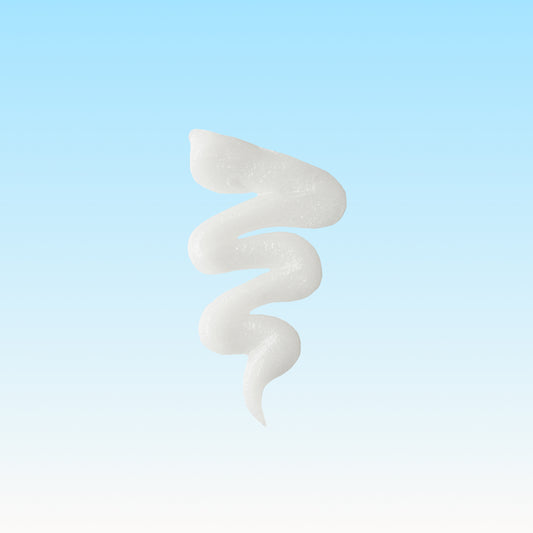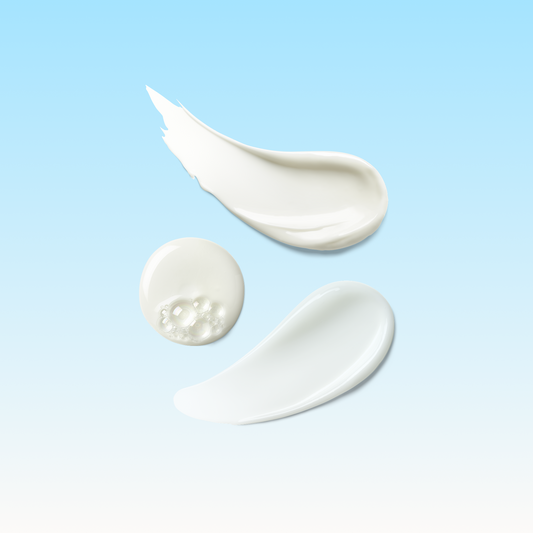S2:E3 Chemist Confessions Duo, Gloria Lu and Victoria Fu
Season 2 Episode 3 Full Transcript:
Acne Chat With Chemist Confessions’ Gloria Lu and Victoria Fu. What Causes Acne, Types of Acne, and How To Treat It
[Amy Gordinier] Total Skin Nerds is brought to you by Skinfix. We're clean, clinically active, and on a mission to deliver healthy skin. Welcome to Total Skin Nerds. I'm Amy Gordinier, founder of Skinfix. Total Skin Nerds is where I get to nerd out with some of the world's foremost experts in skin. We deep dive into issues related to skin disease, skin care ingredients, diet and lifestyle modifications to support skin health, and even spiritual practices and their skin benefits. Today in season two, episode three, I'm chatting with two true skincare gurus, Gloria Lu and Victoria Fu, the founders of the popular skincare science blog and podcast Chemist Confessions. After earning chemical engineering degrees, both women landed jobs working together as cosmetic chemists at L'Oreal. Gloria and Victoria became fast friends with more than a few shared passions. They loved chemistry and loved formulating beauty products. But what they didn't love was the lack of transparency and education surrounding formulations, ingredients, and how they interact with the skin. They created Chemist Confessions with a mission to empower consumers with approachable science education, unsure whether anyone would be interested in the perspective of a pair of chemists.
The blog took off and is today a go-to resource for information on skincare formulation, ingredients, and the skin. They followed up with the Chemist Confessions Podcast, one of my absolute favorites. And they also have published a book up called Skincare Decoded, which lives on my desk and is an easy and digestible reference for skincare science and information. With their unique insights, I thought it would be fascinating to tap what they know about the treatment of acne, one of the most vexing skin concerns and one we all can relate to. I think we'll learn a lot about the evolving science of acne, what we think we know, and what we've gotten wrong. Stay tuned, skin nerds. Trust me, you're going to learn a lot from them. I sure have. Victoria and Gloria, so happy to have you on Total Skin Nerds. You guys are my absolute favorite podcast. Your content in beauty, I think, is some of the best of all beauty content out there, so really grateful that you're joining me on this Friday afternoon on Total Skin Nerds.
[Gloria Lu] Thanks for having us.
[Victoria Fu] Thanks for having us.
[Victoria Fu] That was awesome intro. I just want to replay that to ourselves every day.
[Gloria Lu] I'm going to say it's a nice intro then we give ourselves.
[Amy Gordinier] Well, I can brag on you. And I also want to say to all of our listeners that you guys have to listen to their podcast, Chemist Confessions. If you care at all about skincare, which you obviously do if you're listening to Total Skin Nerds. These guys are the pros and they go topic by topic and they go deep. They did a two-part series on acne that I listened to multiple times. We're in the process of launching an acne line at Skinfix and it really helped to inform how we positioned it, how we thought about it. I listen and I learn a lot from you guys and it informs how we formulate at Skinfix. Skincare Decoded is their book. It's the Bible. I have it here, full of marked pages. So tell us first of all, before we dive into acne. I love the story about how you guys both did chemical engineering and then ended up at L'Oreal. So tell us a little bit about the story and then how did Chemist confessions come to be?
[Gloria Lu] Yeah, I'll go first. I studied chemical engineering.
[Victoria Fu] She's Gloria, by the way.
[Gloria Lu] Oh, I'm Gloria guys. Yeah, and I apologize. I lost my voice during the holiday season and with everything that's going on, just doesn't seem like it's going to heal for a little bit, so be a little bit hoarse during this recording. But yeah, I studied chemical engineering in school, had nothing to do with personal care formulation. At the time my education was geared towards work in oil refineries. I also did a little concentrated course on sustainable energy thinking that, "You know what? I don't want to do oil refinery work. I want to go the other route, I'll do clean energy." All fine and dandy, could not find a job. On graduation it was just a bad time for that kind of market. So I actually landed an internship in L'Oreal, luckily. And at the time I didn't even... Because my education wasn't geared towards formulation and any sort of personal care, CBG production design so I was surprised that I got the offer, but it was awesome.
I went there and we formulated lipsticks for a summer. Or I formulated lipsticks for a summer. And after I'm like, "I have to do this. I have to turn this into a career." So that's kind of how I found my way to the beauty world.
[Amy Gordinier] So what did they ask you at L'Oreal then? I mean, what were they looking for, given that you had no formulating experience? Were they just looking for your kind of chemical engineering background and they figured they could teach you how to do lipstick?
[Gloria Lu] Yeah, kind of. The first one in the door is the right majors and they kind of assume that you learn problem solving skills, a good foundation of science. They didn't expect that most out there... most people will come in and learn on the job. They just want to know that you could learn on the job. And something that I find that is very interesting was during my interview process, they asked a lot about products I use, products I wish I see on the market. Because sometimes we complain about it, but it's also the reality of it, is this field is very marketing driven, so even for their scientists and researchers they really wanted someone that has an awareness to what's out there as well.
[Amy Gordinier] So Victoria, how did you end up through chemical engineering into L'Oreal? Was it a similar path or...
[Victoria Fu] Similar path because it was also chemical engineering. I was probably even more lost than Gloria in a way, because I did not want to go down to oil refinery. I was looking at all these big distillation columns. I'm like, "I don't know if this is for me or how am I going to apply this."
[Gloria Lu] "Oh no, it's junior year. I don't want to do this."
[Victoria Fu] Yeah.
[Amy Gordinier] "I need a job. What am I going to do?"
[Victoria Fu] Exactly. But I was really lucky in that I found a professor I really enjoyed, and I was really interested in the work he was doing, and his work was in nano encapsulation. So I thought that was fascinating, of course it was awesome. And it turned out that his lab was doing work in acne, which is something that I have a lot of personal fields and experiences was with. So I was like, "This is awesome." It's something that is in my realm that I was curious about. And then on a topic that I felt like I could apply the knowledge to, I think I really needed the application of it to really just bring all of what I was learning on home. Because I think sometimes when I sat in class, I just felt like I'm like, "I don't have a passion about this." So I had that experience and realized I just really enjoyed the research. I ended up extending out my education and finished a master's in nano engineering, continuing the research and then decided, "Okay, it's time I get a job." And it was not looking too good because I was headed on a pharma track.
And again, same questions of, "I don't know if I'm really going to like this. The project timelines are long. It's a lot of pressure." Just honestly, a real, just high stress job. And I was thinking like, "At the end of the day, what would be..." I just wanted fun, honestly. I wanted a career path, if I was going to dedicate many decades of my life to working, please at least let it be fun. And so I just blindly applied to a bunch of cosmetic companies, all sorts. And then luckily got a interview with L'Oreal in the skincare lab. And that's how I met Gloria, because our cubicles were right next to each other.
[Amy Gordinier] Amazing. And were you guys in New Jersey or were you-
[Gloria Lu] Yes.
[Amy Gordinier] Yeah. Okay. So I also started my career at L'Oreal on lipstick. But I was a comparative religion, major undergrad. So not a science major-
[Gloria Lu] Wow.
[Amy Gordinier] ... but ended up. I know, wonky. Everyone's like, "What are you going to do with that?" I'm like, "I don't know. maybe go into marketing."
[Gloria Lu] So recently we were invited to a few college clubs to speak about career choices. And we can totally relate to sitting on the other side, really antsy about what's to come. And I'm like, I know it's hard to hear it. I heard it all the time when I was in school. It wasn't super comforting, but just know that it's okay. If your major isn't directly related with what you go into, keep an open mind." Yeah.
[Victoria Fu] Yeah, yeah. For sure.
[Amy Gordinier] Such good advice. My kids are about to... My daughter's a senior and I keep telling her, "Don't worry about what you major in. Just enjoy it. Learn, have fun. You can do anything." You can't probably go into chemical engineering if you do philosophy, but you can do a lot of other things.
[Victoria Fu] Yeah.
[Amy Gordinier] And I'm so glad you guys ended up in beauty because I feel like, there aren't a lot of... Before you guys, there aren't a lot of chemists that really talk about product and ingredients and formulation. And you've brought a level of knowledge that I think is really cool and needed. Dermatologists are awesome. We talked to a lot of derms on the program and they know skin issues and skin concerns. And some of them increasingly know ingredients, but they don't know ingredients like the chemists. And so it's cool. It's really helpful to me. So we want to talk about acne. One of the many topics that I'd love to talk to you guys about. And I learned a lot about acne from you. So tell us a little bit about what is it and what is this whole situation with P acne becoming C acne? And why do we kind of have it wrong when it comes to tackling acne?
[Victoria Fu] Yeah. So acne is a chronic skin disease. It is something that people can deal with. It's not just a teenage situation. People up until their forties can still deal with acne and it's incredibly complex. And yes, it was formally known as P acnes, propionibacterium acnes. But then got a name change because they realized that it was much too broad. Ultimately in order to just really focus on the bacteria that was dealing with acne vulgaris, they realized they needed to specialize it. Because if you looked at actually the realm of P acnes that also involved like certain bacteria that were very common in fermentation process, just really didn't apply. So just kind of made it a little more granular, more a focus. So that was the reason for the name change. And in terms of why it feels like we've gotten it wrong is more that there was just so much focus on this idea of a bacteria. Backne, sorry. Bacteria overgrowth. To the point that when I think about dealing with acne and in my teenage years, it was just focusing on ridding yourself of bacteria.
[Gloria Lu] Murdering everything living on your face, [crosstalk 00:11:46]-
[Victoria Fu] Just completing an exorcism on your skin, which is so, so bad for your skin. And it's why like antibiotics have just been around for as long as they have. It was such a huge focus. And now we see that not only is it complex, we knew that it was a hormone driven issue. But they know that there's different and also important factors that are not being considered in the treatment of acne. So that's why acne deserves a new strategy for sure.
[Amy Gordinier] A new strategy. What are some of those factors that are contributing that we're not treating or maybe not always able to treat?
[Victoria Fu] Yeah. So see C acnes is one of the factors, but other things are change in sebum production. They have seen that excess oil production does lead and correlates to acne growth, acne lesions. There's also something called hyperkeratinization, which is this cell proliferation in the pores that can basically create a really nice situation for acne overgrowth, and is what leads to clogged pore. And then also this inflammation that really can just drive your comedones from something that might be a little bit more tame to something that is painful. It can be cystic. And can really just, let's say complicate your breakout situation. So, those would be the four main points to look at.
[Gloria Lu] And I think inflammatory response is definitely one that's gotten a lot better light in recent years. That and combined with a more gentle approach to the bacteria problem. Because as Victoria mentioned, we're honing more of the specific strain that may be causing acne. And there's a lot more talks about microbiome now and that's not about zapping every living organism. People are starting to understand that when you need to up-regulate the good, you knock down the bad, it's a little bit more nuanced than that.
[Victoria Fu] And such an important point because C acnes are not necessarily bad for your skin. They're not inherently bad. It's just an overgrowth. It's an imbalance of bacteria. Because happy skin has happy... Has a happy diversity of all these microbes that are on your face. And then it's just overgrowth that contributes to the acne lesion.
[Amy Gordinier] And it's interesting. It seems like more and more, we're starting to understand that a lot of skin issues are related to just a dysbiosis of the good, bad bacteria balance on the skin. I mean the fungal acne. And so it's interesting that we're finally getting there and they're starting to be new approaches. So when you guys are formulating an acne product, what are the things that you are trying to accomplish? What are the modes of action that you think, "Okay, we need to do this. We need to exfoliate. We need to reduce sebum." What are the things that you think about tackling?
[Victoria Fu] I think anyone that deals with acne knows there is never going to be a single ingredient that will solve your acne situation. It's just not how that works. If you look at just, even in the retinoids family, that's probably one of the most well studied categories for tackling acne. You'll see that only Accutane is really one that can address these four focus points that we just discussed. So you're definitely going to need a team and everyone's combination is very different. So for us, it's really more... And on top of that as formulators, we know that not all these actives are going to like playing together. Or sit in the same formula together. So with that we try to say, it's like the approach is really like, "What is your main..." I know we're going to get into this later but what is your main, I would say acne fighter? Whether it is retinoids, adapalene. You're using a prescribed azelaic acid treatment. That's all good and dandy and then you're going to want to build around that, in terms of targeting inflammation.
And also, like treating acne is one part, but it's also managing your routine while using these treatments. Because healthy skin is important to you being able to treat, I guess, accommodate being on these treatments along with sunscreen. So it's almost this delicate juggling act you have to do in your skin care routine. So one single formula would be hard for us to say, but I would say in terms of skin routine there's definitely a strategy for sure.
[Gloria Lu] For our own line... Oh, sorry. I was just going to add for our own line we don't have like a one product that's uses these OTC ingredients. But for us we definitely [inaudible 00:16:43] our products filled with soothers just to kind of, let that be the buddy to go along with the really aggressive actives. Especially now that people are getting more well verse ingredient, they're starting to realize that, "Hey, one cell as in product is really not going to cut it." But on the flip side, people are getting a little brave with what they're layering. So you see, it does take a cocktail of actives and products. But sometimes people are like, "Okay, I'm on tretinoin. I'm going to jump on BPO, sal acid. And I'm going to take antibiotics." And for us, it's giving them enough soothers to help them write this out.
[Victoria Fu] Yeah.
[Amy Gordinier] I love that. Because the skin barrier in the end of the day is getting sort of overwhelmed with the chemical warfare that's going on to treat the acne, and then having your skin sort of have that support is so important. So when you do talk about the heavy hitters in your book. And you touched on them, Victoria, the retinoids, the sal acid, benzoyl peroxide, azelaic. I actually don't know if you included benzoyl peroxide, but talk about what the heavy hitters are actually doing and how you might choose one over the other. Or do you know until you try them.
[Victoria Fu] No. That's really tough to say how to choose one over the other. Because at the end of the day, it's also like, what are you, your skin tolerance? So for us, when we think of heavy hitters we're thinking the ones that are actively trying to reduce the amount of lesions. How you really want to look at acne treatment is, there's never going to be a situation where you apply it and your skin is just clear. It takes cycles of skin turnover to see improvement. And every skin cycle turnover, you want to see a reduction of lesions. Every period you'll see... You're still going to break out. But hopefully that breakout is starting to look better, clear. So with that, that would be your focus point and goal with these heavy hitters, is these are the ones that are really actively trying to reduce your breakouts.
And so that would be things like the retinoids mainly tretinoin here and then adapalene. Those are the two main ones. There's also a lot of prescribed retinoids that we won't cover just because it's really a conversation to have with your derm. And then BPO is the one that's like tried and true. It's been around for so many years, but is-
[Gloria Lu] I mean people have pillow cases as memorabilia of their BPO.
[Victoria Fu] Exactly. And it has been shown to work. But again, it's also another one that does come with some irritation and some side effects and some permanently damaged clothing. So those would probably be your main areas that you'll look at as heavy hitters.
[Gloria Lu] Yeah. And I think sal acid is a lot of people's entryway to acne treating actives. Because it's in everything. It's fine but it is a very narrow scope as far as acne targeting treatment is. It targets the hyperkeratinization problem. It's exfoliator. And obviously you'll hear about it talked a lot about as a, something that’ll help cleanse out your pores because it's an exfoliator. But it is just one aspect of treating acne. And I think a lot of people end up getting disappointed because there those sal acid targeted treatment that claim that, "Oh my God, you're going to wake up to clear skin. Or this is going to zap all your acnes," or whatever lingo they use. But yeah, sal acid is great as a supplement, but definitely too narrow to really solve long term problems.
[Victoria Fu] Yeah.
[Amy Gordinier] So, you need a more holistic approach. You need something other than just sal acid, in a product.
[Gloria Lu] We would basically say we wouldn't put sal acid in the heavy hitters category compared to like BPO and adapalene and tretinoin and those are... yeah.
[Amy Gordinier] And azelaic. I think you had azelaic in there as well.
[Victoria Fu] We did, but Gloria can you share our frustrations with azelaic.
[Gloria Lu] Azelaic acid is one of those ingredients that has a lot of great data on them. It is a very high use level ingredient. Most data shows hyperpigmentation and anti-acne properties at 20%. It's very hard to come by, at that level you often need a prescription, and those formulas are rare. And part of the reason is it is a garbage ingredient for chemists to work with. You talk about ingredients like niacinamide. Deserved a good rep and part of the reason why it's everywhere is, anyone can formula with niacinamide. It's very easy to work with. It's like a chemist’s best friend. Azelaic acid, is that molecule just sits there and be like, "I don't think so. I'm not going to do what you want me to do." It doesn't-
[Victoria Fu] "I will not solubilize today."
[Gloria Lu] "Not in water, not in alcohol, not in oil, I'm just going to chill here." Well, that's why you get through that it's a little pasty, a little gunky and you can get it to be in like an okay cream, but in a way that texture almost goes against what people with acne are looking for... because it's thick, it's kind of gross. Yeah. And if you are working with a slightly less experienced formulator, it's going to be a little gritty even. It's a hot mess to work with.
[Victoria Fu] Yeah.
[Amy Gordinier] Well we just formulated a couple skews with it and I would agree, it was tough. It was really tough. And we went multiple, multiple rounds with the chemist.
[Victoria Fu] Oh, that's so exciting.
[Gloria Lu] Yeah.
[Amy Gordinier] He nailed it. He nailed it, but it was gritty, it was clunky, it was also hard to stabilize all of the things you're saying. But we got there in the end. We got there in the end with a spot treatment with 10% azelaic and 2% BHA and 2% niacinamide. And so it's nice, but it was not easy. Yeah, I hear you. I hear you completely. Now in terms of then the next level down, you guys talk about sort of the secondary ingredients that you want to think about when you're looking at acne topicals. Talk a bit about those.
[Victoria Fu] Yeah. So secondary is really, we think of as your exfoliants. So just like we said about sal acid, glycolic acid and in fact gluconolactone is the one that actually has been tested in comparison with BPO. So, we would say that these are great just to keep [inaudible 00:23:11] moving. It's actually a good component to have in your routine regardless of having acne or not. But there is some data on there and it's help and improvement in acne breakouts. And I think the one thing that has been interesting for us is, every year we talk about exfoliants, we do an annual update. We also refresh our knowledge of what's going on in the research space. And this year, I think what we realize is we've come to this conclusion, even though it's more than a theory that mandelic acid is this weird one that people associate with acne. Partially because like it has its property where it can be slightly lipid soluble, but-
[Gloria Lu] That's structural cousins to sal acid.
[Victoria Fu] Exactly.
[Gloria Lu] It's something we'll look in.
[Victoria Fu] And so if you do a little research, you'll realize the data is kind of mysterious in terms of how it kind of got its claim to fame. But we recently discovered someone that did a comparison study of mandelic versus glycolic, 10% mandelic, 10% glycolic, and found that even 10% glycolic acid, they still performed on par. It was fine, but glycolic acid did better in treating acne breakouts. So we find that some people they gravitate towards some things based on what they heard. In theory, it all makes sense but then also we just want to say like, "Don't count out these other AHAs that may not get talked about in the same realm.
[Gloria Lu] Yeah. And we really like mandelic for someone with say inflammatory lesions too because it is a gentler alternative.
[Victoria Fu] Yes, exactly.
[Gloria Lu] But I think a lot of times if you grow on the interrupts and you look at content creators like us and other professionals out there sometimes like it's tempting to look at simple charts. That's like, "This asset is for this skin concern. That is for that." It's not like-
[Victoria Fu] It's kind of like easier to organize.
[Gloria Lu] Yeah. Make a very simple statement like that. But what we find is like, "Hey, as far as... Where chemical exfoliants are concerned, glycolic is a gold standard all around. And let's say if you have a very angry lesion and you're not tolerating it well, we're not saying go for it. But at the same time, in the long term it's still the gold standard. Don't count it out just because you're seeing a chart that, there isn't a check mark next to glycolic on acne. It's still helping. I don't know. Just the act of chemical, effectively chemical exfoliation is the-
[Victoria Fu] Is the main goal.
[Gloria Lu] ... what you're trying to do. Yes.
[Victoria Fu] Right? Yeah. I want to say-
[Amy Gordinier] And when you guys raise-
[Victoria Fu] Oh sorry.
[Amy Gordinier] ... is raise a good point because you talk about out the research. And I think that's where, there's a lot of, and you talk about this a lot on your podcast. There's a lot of inconsistent information out there about skincare. There's a lot of even inconsistencies in research. But talk about how important is data to you guys. I mean, do you care about the data? Do you care that there's research? How important is that?
[Gloria Lu] So it's-
[Victoria Fu] It's everything.
[Gloria Lu] It's everything that excites us on what we talk about, how we formulate. But we'll say we are all in a field where data is a little sparse and some-
[Victoria Fu] And can sometimes seem skewed.
[Gloria Lu] Yeah, absolutely. And sometimes well, we kind of talk trash about ingredient on podcasts and once in a while we'll have a follower that send us a paper say, "Hey, have you guys seen this? This ingredient seems to be... This paper seems to show this ingredient a better light than the way you guys talked about it." But the thing with data in this field is like, sometimes it takes us so long to put together an episode because you have to read the whole paper. Because you might see a sexy headline with a sexy conclusion. That's like, "This ingredient is super helpful for like whatever." And then when you look at the actual data and actual methodology and you're like, "I don't-"
[Victoria Fu] You're like, "How many times do they use it a day? How did they pair it? It's used with this formula? So the protocol can make a huge difference.
[Gloria Lu] Yeah.
[Victoria Fu] Yeah. I think that's just to, I guess share how we approach data. It's like taking a conclusion from an abstract is not enough. It's similar to like taking a news headline. It's like you got to read into it to really understand what is happening here. Yeah.
[Gloria Lu] Yeah. So that's why in the book, in the active section, we talked about the big four which includes retinoids, AHAs and niacinamide. These ingredients that are proven over and over again. The feel, we understand that from our marketing angle. People are always chasing the new thing. Right? You want that new mysterious ingredient that's going to be the new savior, genius, hero ingredient. But with where science goes you want the test, the tried and true. The one that's been tested by different groups of people, different companies, different universities, that's been proven to work over and over again.
[Victoria Fu] Yeah.
[Amy Gordinier] Just back to acids for a minute. What is your perspective on certain acids with melanated skins? You read a lot about certain acids being a concern. I think glycolic is often called out as a concern if you have pigmented skin. So talk a little bit about that.
[Gloria Lu] So generally speaking, what you buy at a cosmetic store shouldn't be of much concern. The reason why people with darker skin types tend to struggle with chemical exfoliants such as, especially glycolic acid is they're more prone to PIH, which is post inflammatory hyperpigmentation. But the store levels shouldn't be aggressive enough to cause that. And the reality is for any skin type and any skin color range, you should approach chemicals fully with a level of perspective. If you never use it, probably don't jump in with a 30%. And we called out in the book too, like you can buy wart removers and 70% glycolic on Amazon. Don't do that. Stick with bigger brands, reputable sources. Stick with five to 10%, and kind of start your skin out. At that level, at the store made product where the pH is around three, 3.5. It should be well tolerated by all skin type. If you experience any itching, move down level, change on the molecule and just keep an eye out on it.
Proceed with caution. Where you should really be concerned is let's say you go into your office for a more aggressive chemical peel. Just to give context of the level difference. It starts at like 30%, at the office level and we're talking pH of one. It's drastically different. And you should be concerned if your provider, if you have more melanated skin, you should be concerned if your provider looks at you go, "Let's go for a 50% glycolic peel." These are things that, not everyone who is melanated can't tolerate glycolic. But it should be watched very carefully. So, yeah.
[Amy Gordinier] Okay. Okay. Good clarification. So anything as you said that you would buy from a reputable brand is probably not going to cause a problem.
[Gloria Lu] Yeah. Yeah. It's like anyone else. It could cause irritation. Don't jump in head first. Kind of listen to your skin and be a little patient.
[Victoria Fu] And I think the other thing is just keep tabs on your concentration.
[Gloria Lu] Yes.
[Victoria Fu] That's the best way to approach it. This is probably, when we first started we were like all about percentages. And now we've seen that percentages have just, I don't know. They just bastardize this whole initiative. Right? So the goal is just really keep tabs on the molecule you're using and the percentage, and then just try slow and low and build your way up. No need to go balls to the wall immediately.
[Amy Gordinier] Well, and percentage is not to deviate down that road but are so tricky because we do claim percentages but sometimes an active level is like 0.2. That could be an active level of a certain ingredient. And so someone looks at it and they're like, "0.2." So it's kind of misleading if you don't actually know what the active level is and what the appropriate amount is.
[Gloria Lu] Exactly. And then we find it so hard to talk about. Because in the beginning we do, when we first started we see a lot of brands that from a chemist's perspective, we can already tell that, "Okay, this is probably not at a good level." Just like into the batch type of level.
[Amy Gordinier] A little sprinkle, a little fairy dust.
[Gloria Lu] Yes, fairy dusting actives. And now as you mentioned, people think higher is better. And we can't blame them. Right? You don't want your products to be... You hear slogans that's like, "Our products are so high. Other competitor products use 98% water, shame on them." And that's not how it works. It's not right. Ingredients like peptides work as low as in the PPM range. And you have retinoids, retinol in particular 0.1 to 1%. 1% is incredibly high already. But then you have brands that's like overclaiming that percentage. It's misleading and-
[Victoria Fu] So confusing.
[Gloria Lu] ... it's super, super [crosstalk 00:32:36].
[Victoria Fu] Yeah. So we're very sad by that. And I was going to say, just kind of moving on to another ingredient that happens to be popular in acne is niacinamide.
[Gloria Lu] Yeah.
[Victoria Fu] I think that's like-
[Amy Gordinier] Well, that's one where they've gone up to 20% and Dr. Shah was on and he's like, "All you need is two to five. You don't need more than two to five."
[Gloria Lu] Yes.
[Amy Gordinier] So yeah talk a little bit about niacinamide and how great it is, but also what the right level to do the work.
[Gloria Lu] Yeah. So niacinamide we dedicated a whole chapter to in the book. Because it is a tried and true ingredient. And it's been tested in a lot of different and interesting angles. It's one of the very few ingredients out there that has clinical data that showed that it kind of it regulates sebum production, but at the same time doesn't dry out your skin because it actually moisturizes your skin in the long run.
[Victoria Fu] And I was going to add the one thing that most people they hear about oil control and, kind of geared towards oily skin. They kind of correlate to oil reduction, but that claim is actually really hard to accomplish.
[Gloria Lu] Yes.
[Victoria Fu] And very few ingredients out there that actually have been proven to reduce oil sebum production. And so that's why we think niacinamide is very special in this case because it does have that kind of data behind it. Not so much in terms of treating acne lesions, but in terms of sebum regulation that's also very interesting to have.
[Gloria Lu] Yeah. Niacinamide also has great data on hyperpigmentation. And to get a little nerdy, it works in a very different way than other hyperpigmentation active ingredients you hear about. So we kind of think about it as a jack of all trades. It pairs well with almost everything. Oh, and there's a fame study that including niacinamide in a formula actually reduces irritation in my experience from retinol. All great and dandy, all the studies are done pretty much between two to 5%. So 10% was popularized by the ordinary. And where you are like, "I don't feel skin is tolerant and cool." Now everyone thinks 10% is a standard. Then other brands have to be like, "Well we have 15. Well, we have 20." And then just like, just stop it. Based on just solubility from a chemist perspective, you can have a solution of niacinamide at 50% percent if you want to, but what does that really do? It's just, there is such thing as too much of a good thing.
[Victoria Fu] Yeah. And I think it's also something we try to remind people is like, people think that, "Oh, if it's great at 5% imagine what I can get at 10%."
[Gloria Lu] Yes.
[Victoria Fu] Your skin doesn't work like that. It can only process so much. And for me as someone in... Who has a acne prone routine, spending one step on just 10% niacinamide is not worth it to me. And as a chemist, I look at that and being like, that's a waste of space because you're not even taking advantage of a niacinamide's best property, is that it gets along with everything. So we always recommend, try to get it in a moisturizer if it's in a serum with some other actives. Wonderful. That's it. That's all you need. Walk away from the niacinamide train and let move on to other actives that we need to a target acne.
[Amy Gordinier] I think that's great advice we've been using a complex, you guys are probably familiar with it that combines a 2% sal acid with a 2% niacinamide. And our chemist loves it because he says it mitigates some of the irritation that can come from the sal acid and helps to combat some of the dryness so that makes sense. But I love this topic because we're also trying to educate that, more is not better especially if you're someone with sensitive skin or skin issues sometimes that is not the best thing. So let's talk a little bit. One thing that I loved on your podcast and in your book was you talked, I think more on the podcast. You talked about how cleansing can be a viable treatment step for acne. And then I think you said the two sort of acne go-tos are cleanser and spot. And everything else can be more sort of skin supportive. But let's talk about how can a cleanser actually do any work when you're rinsing it off.
[Victoria Fu] Yeah. And it's funny just some added context. We actually like to tell people like, "Do not spend money on your cleanser." "Do not buy an anti-aging cleanser." Because a lot of those actives, they need to be a leave-on treatment that's used... A lot of times they're often tested twice a day use. So it kind of goes against one of our founding principles. But with specifically with sal acid, they've found that in a cleanser mode, I guess a cleanser format, it has been found to be helpful. And we think that deserves merit because in an acne routine what happens is you're usually trying to pair a lot of treatments together and layer, and sometimes you cannot manage doing a 2% toner versus, and then you've got to use other treatments sometimes that layering just doesn't work.
And so we tell people that, based on the data it does show that even with this almost like temporary event of washing your face with this active, it has been shown to be helpful. So that's really awesome because it kind of just provides one other step that they can use for treatment, because usually acne routines are super crowded.
[Gloria Lu] And I also want to add that I think, and you brought up a good point that sometimes I feel like sal acid is like weird active. Or for some people they're like, "Wow, sal acid does nothing for me." But for others who are a little bit more sensitive or those that have a very loaded routine, it can be very, very drying.
[Victoria Fu] It can be.
[Gloria Lu] It can be the ingredient that cause you to shed. So by keeping it in the cleanser step, it's also just you add a little bit [inaudible 00:38:37] to a routine without really tipping it over, tipping it to that irritation role.
[Victoria Fu] Yeah. Yeah. People always think you're supposed to aim for 2% of sal acid. Oh, and yes. In data you would see that it's always tested at 2% because it's the only thing they're using in the routine. But when you have this combination of other actives, 2% can be a lot. And so again, like we mentioned with all chemical exfoliants, it's like you don't have to hit 2%. If you can get it in a cleanser mode or if you find it in 1%, give it a try. You might see that your skin's a lot happier with that concentration.
[Amy Gordinier] And do you find the acne person is buying everything in their regimen is active. Because that's also a concern and I think you guys have talked about it is that every single product that you use, doesn't have to have BHA in it or benzoyl peroxide in it because that's too much. But talk a little bit about, what is the best way to deliver the actives but also buffer and protect the skin and sort of the in between steps.
[Victoria Fu] So I can speak from personal experience. I have bought everything to be acne minded, I guess.
[Gloria Lu] Sorry. Do you have a least favorite product?
[Victoria Fu] Ooh. But it still exists.
[Gloria Lu] OK, nevermind. Sorry. We're going to get back-
[Victoria Fu] I would say any sort of rapid spot, 10% BPO has been the worst for me. Just because it's too much for my skin. I'm actually already using other treatments. So it really does feel like I'm frying my face. But for ac- Sorry, so acne treatments. Yeah. So, I would say that in terms of building an acne routine, the strategy is, again, I mentioned about finding your main treatment. Whatever that is. Make that the spotlight of your routine, build everything else around it after you've acclimated the main guy. Right? That would be the easiest way to... And probably, for an acne person that used to seeing lesions just like heal in like five days. Right? They probably are used to kind of that much quicker timeline of seeing results. It feels slow, but it's a much... You're in it for the long run. It's a much smarter game, because then once you start hitting irritation, tightness, stinging, anything like that, then you have to dial it back again and figure and get skin back to an okay place to start onboarding again all your treatments.
So we would say, yes, it's really hard because, if you look at skincare and shop for skincare everything's like, "Oh, helps with oily skin oil, reduction as a.. You need your acids. You need on top of your acne meds." So I think it's too easy to build a completely acne based routine, but that's really not... It just doesn't really capture everything that you would need. Right? Because you still need your sunscreen. You still need a solid moisturizer. You need all those soothing actives. So, just don't forget those other players that are also helping.
[Gloria Lu] Yeah. And I was also going to say, keep one type of active ingredient per skew. As you kind of mentioned Amy, that sometimes people have a sal acid cleanser with a sal acid toner with a sal acid spot treatment, with a sal acid cream. You are not diversifying your strategy. Again., we're not saying jump into laying 18 different actives at the same time. But the other way around is also a very common mistake is you can buy a whole line of products, whole range of things that has one type of active. So you're completely overwhelming your skin with one type while neglecting the other aspects of acne.
[Victoria Fu] Yeah. No.
[Amy Gordinier] Now, Victoria, do you find that you've locked in a routine and that's it? Or are you still searching? Are you still on the hunt for the perfect acne regimen?
[Victoria Fu] Yeah, definitely. I have not locked it in. Also because our job requires us to try all sorts of products. And on top of that, we live a very kind of a, let's say. Just not very, we're traveling for a long time so just the lifestyle wasn't really conducive to setting up for a good regimen, consistent regimen. But I will say that I definitely am like a champion for OTC adapalene. I'm so glad they made that an OTC ingredient. It has a lot of really exciting data on it. And it's really cool. We talk about this in our podcast, in our blog. But pairing it with BPO is much better... I like that combo actually better than tretinoin and BPO, which was kind of the go to pairing before. It actually has shown synergistic data being used together, even used at 0.1% which is the OTC level in pairing with 2.5% BPO, that has been too is shown to be better than using like a 0.025 tretinoin. It's got a lot of really cool, just exciting data to hear as a combination.
And you don't have to worry too much about, before there was that controversy with tretinoin and BPO pairing and that it could basically deactivate BPO. That's still like to be decided. There's papers that say, "Yes, same." Some say no, but you don't have to worry about that as much. And I do like it. I use adapalene currently and I just think it is a very gentle retinoid to try for anyone who's like looking for, or just haven't really given it a shot yet. Yeah. So that would be my go to, I use at night.
[Amy Gordinier] Okay. So some questions from our listeners. And what I love about you guys as well is that you kind of say, "This is our lane, we're chemists. We know a lot about ingredients and we know a lot about skin and how these ingredients interact with skin." But there's always a point at which, and some of these questions I think will lead you to that. You say, "Talk to a derm." What is sort of your thinking on that with respect to acne? When do you think, and you talked about it in your book. I think it was really clear. When does someone really need to consult a derma and leave the OTC solutions behind and look for something a little bit more rigorous?
[Victoria Fu] Yeah. So we typically say, it's like, if you've been at it long enough and you're just frustrated or you're just lost, that's a good sign. Another one is usually one, it starts to get painful when you are dealing with cystic acne. Topicals really can only do so much. You have to manage expectations a little bit with your skincare. They work, but then there are situations that are a lot more complex. And derms can give you a much more tailored approach. So, yeah. And then definitely anything that if you're dealing with acne and you're pregnant, that's immediately please go see a derm.
[Gloria Lu] Yeah. There's so many ingredients in the acne realm that's like, a wee tad sketchy at that time.
[Victoria Fu] Yeah. It's like always you want to take a conservative approach. And so a lot of people are like, "No, it's better to just have your doctors work with you on that."
[Gloria Lu] Yeah. And another aspect of that is doctors can help. It's like having an accountability buddy on your journey. Because you are not going to go to one derm visit and be done either. They're going to have to assess how you respond to say, the first round of prescriptions. And kind of follow you through on journey. And yeah, and you're just not going to be able to self-diagnose yourself every month to say, "This is okay, I'm doing good. Let's keep going. Or let's bump up that bag." That's what a derm is for.
[Victoria Fu] Yeah. And definitely like whatever routine you have, bring it into your derm. Have them have a very full picture of as to what you've been using, your history. And we always say it's kind of a red flag if they don't really care about that because that history is important. And then we also like to say, if you have self-diagnosed yourself with fungal acne, definitely go see a derm. Because you should not be self diagnosing yourself. And if it really is fungal acne, really the derm will be the only one to help you with that situation.
[Amy Gordinier] Yeah. It's a very, very different set of needs in that instance. Well, and you guys talked a lot about on it your podcast too. Well, you do in general not just about acne, about sort of skincare forensics and figuring out what the right regimen is for you and the right levels. And with acne, I'm sure that's even more acute and it's going to take time and trial and error and a derm can help you on that forensic journey, if you give them the information about what you've been trying and what hasn't worked and what you haven't liked. Okay. So one of the first questions which is, which you touched on a little is what is the ideal routine for someone who wants to get rid of acne scars, but also treat active acne at the same time?
[Victoria Fu] Yeah. So it's... Okay. I would say that there's not a lot of data that really looks at those two things. But I've already talked about this already and raved about it, but there is one study, a long term study of 0.3% adapalene and BPO, I forget the concentration of it. It actually looked at the improvement of acne as it healed over time and found that it did help in terms of its healing and potential for scarring. And this was a recent paper so seeing that is very exciting ultimately, and if you are looking to kind of help with scars, that usually involves an in office procedure. So again, that's probably better for a derm to have that conversation. And they will also know when it's like time to almost expand out of actively treating, into managing and healing. They're the best ones to make that judgment call.
[Gloria Lu] And I want to add that it's going to be tough but don't forget the sunscreen. Sunscreen-
[Victoria Fu] Oh my gosh. Yes.
[Gloria Lu] ... tend to make the healing progress so much better. Yeah. The sun just exacerbates everything, which includes any sort of potential for like scarring and that appearance thereof. If there's any sort of pigmentation that come in because of the sun is going to be very tough.
[Victoria Fu] Yeah.
[Amy Gordinier] You guys touched on this, what regimen do you recommend for pregnancy and postpartum? I know just-
[Victoria Fu] Derm
[Amy Gordinier] ... we work with derm. Go straight to the derm.
[Gloria Lu] [crosstalk 00:49:39]. Yeah. Yeah. I mean, with pregnancy, this is definitely out of our realm and also, it's time for a more conservative approach. It's good to have your OB and/or your derm vet that your whole routine.
[Victoria Fu] Yeah. And also like, we just one of those reminders, when you're pregnant this is a time... There's no reason to like, be aggressive. I feel like sometimes with more science based communication people are like, "The data doesn't say you can't use it." But then when you're pregnant you're like, "There's no reason to not have to listen to any of that." Like you're in a very delicate time of your life and we, again, as chemists we're like, "Y'all should not be listening to us. We are not doctors. We are the formulator." Yeah.
[Amy Gordinier] No, I love that. I love that you give that advice. I think that's important, important. We do the same. We're a skin care company, we're not doctors. And it's important that you get the advice from lots of different people. Are clogged pores considered acne?
[Victoria Fu] Yeah. I really like this question because, yes they are. There are many types of comedones. Blackheads are acne. I like this question because it makes me feel like everyone is going through what I've gone through. And acne should not-
[Gloria Lu] Everyone has acne.
[Victoria Fu] Yeah. And everyone, it just shouldn't be as taboo. And I feel like it's so good to see it not be as taboo as it once was. When it can be just so like, just really impactful as a teenager or just going through high school. But now even seeing these decorated zit stickers.
[Gloria Lu] Those are just [crosstalk 00:51:27]-
[Victoria Fu] Things that just make it fun. I just love everything about people's mentality going into acne now.
[Amy Gordinier] It's amazing. I have a 16 and 17 year old and they go to school. With my daughter, goes to school with the little, and she loves to search for the shapes. And my son, I took him to my dermatologist in New York because it's very hard to get in to see a derm in Canada. And she prescribed a prescription topical and he's like, "Do I need that? I don't care. So what? I have acne who cares." So I think, it's nice to see that in the teen demographic, because I was not like that when I was a teen. I was like, "Get it all figured out." But it's a totally different zeitgeist that they're living in with respect to skin positivity. It's great. And what is better to use with tretinoins, sal acid or benzoyl peroxide?
[Victoria Fu] Again, I would say it's BPO. If you're looking to actively target acne. Sal acid again, because it's secondary. There's actually quite a few papers that test BPO on tretinoin together. So that would be my go-to. Yeah.
[Amy Gordinier] Okay. Awesome. Well, listen guys, I just absolutely loved having you on. Would love to have you back to talk about all of the other topics in your book.
[Victoria Fu] We're down.
[Gloria Lu] We’re down.
[Amy Gordinier] It's so great to have two chemists, especially female chemists in beauty talking real science. And you do it in a way on your podcast, it is dense and legit but is also understandable. So thank you very much. You inform a lot of my product development. So I appreciate it. I really appreciate having you guys on today.
[Victoria Fu] Thanks, yeah.
[Gloria Lu] Yeah. Thanks for having us.
[Victoria Fu] Yeah. This was fun.
[Amy Gordinier] You can catch the Chemist Confessions podcast wherever you listen to podcasts. And be sure to check out the chemist confessions blog at chemistconfessions.com. Wow. I learned a lot from them. I'm sure you did too. I want to thank Gloria and Victoria for nerding out with me, and for sharing their acne expertise and insights. Here are three things that really stood out for me in our conversation. One, one of the most important new insights in the science of acne topicals is a greater understanding of how the balance of bacteria on the skin surface, aka skins microbiome contributes to our understanding and treatment of acne. Specifically the imbalance of good bacteria versus bad bacteria or dysbiosis. As Victoria said, "Happy skin has a happy diversity of microbes on your face." So new skincare science is now looking at how to keep the microbiome balanced versus what Gloria calls murdering every living thing on your face.
Second, there is no one panacea ingredient or single hero product for acne. Salicylic acid plays a role, niacinamide, retinol, azelaic acid. Each has a role to play at treating different symptoms or skin dynamics. Treating acne requires a holistic approach to tackle a multitude of factors. From sebum overproduction to bacterial or fungal overgrowth, to inflammation and even underlying skin barrier health. Success lies in using multiple, purposeful ingredients within a regimen. And also not overdoing it on one type of active. Lastly, treating acne isn't a one and done scenario. It takes multiple cycles of skin cell turnover to begin to get it under control. It requires a bit of patience and consistency. Breaking the acne cycle requires figuring out the regimen that works for you over time, and adapting as you observe changes in your skin. So don't be frustrated if skin isn't clear overnight. Stick with the regimen that gives you the best results and be patient and kind with your skin.
Thank you for listening to this third episode of the second season of Total Skin Nerds. We'd love to hear from you and would be so grateful if you could take a moment to leave a review. And please subscribe to the show on Apple podcasts and Spotify or wherever you listen to podcasts. Total Skin Nerds is produced by Rob Corso, Casey Kahn, and Howie Kahn for FreeTime media. Our theme music is by John Palmer. Special thanks to Lauren Fonda, Amanda Knappman, Meghan Collins and Carmine Montalto. And I'm your host Amy Gordinier. Till next time, skin nerds.
[Speaker 5] Total Skin Nerds is a podcast created to educate. It is not a substitute for professional care by a doctor or other qualified medical professional. This podcast is provided on the understanding that it does not constitute advice. If you are looking for help with a skin concern, we would encourage you to seek the advice of a board certified dermatologist, functional medical practitioner or other qualified healthcare provider. You can find a registry of board certified dermatologists in the US at find-a-derm.aad. .org. And in Canada at dermatology.ca. For a registry of qualified functional medical practitioners, you can visit ifm.org. Thank you so much for joining us on this episode. We hope that you enjoy listening to Total Skin Nerds, as much as we enjoy making it.















